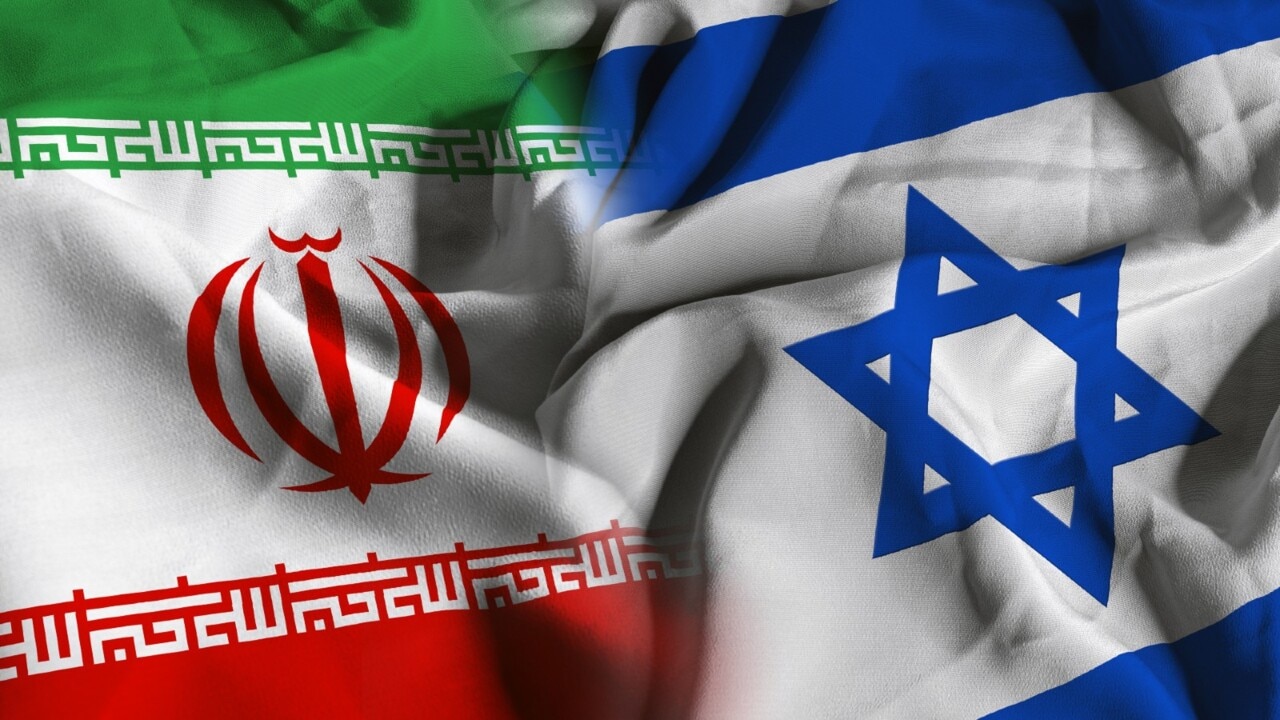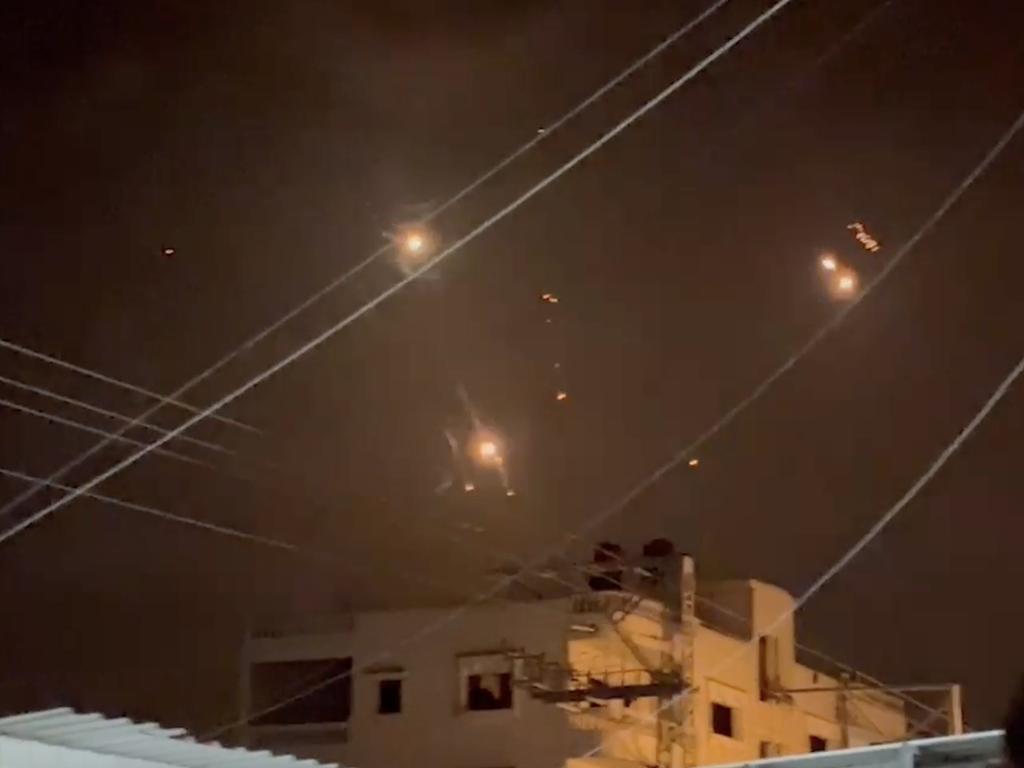World not ready for conflagration about to hit Middle East


Crucially, it has happened immediately after President Joe Biden declared US support for Israel in the event of an Iranian attack and cautioned Tehran not to go down that path. Biden is now on the horns of the same dilemma that confronted president Barack Obama in the northern summer of 2012.
Biden warned Tehran not to cross a red line and it has promptly done so. Obama likewise warned Syrian leader Bashar al-Assad not to cross a red line and was ignored. The regime in Tehran knows that.
For precisely this reason, we are now, in the Middle East, even closer to a general war than in Europe – where Vladimir Putin has threatened “World War III” if NATO continues to thwart his aggression in Ukraine. And it is now clear that Xi Jinping, the dictator of China, has increased his backing for Putin and is helping him beef up his arms industry for a decisive push.

Iran is part of the Sino-Russian axis, with North Korea heartily coming along for the ride – a nuclear-armed North Korea. If, until the suicide drone attacks of the past day or so, there could be some equivocation as to whether Iran was the puppet master of the lesser mortal enemies of Israel, such equivocation ought now be silenced. It is, and it has shown its hand.
This comes at a time when the US is internally divided over its commitments in both Europe and the Middle East, and moving, week by week, deeper into a seriously divisive presidential election year.
It comes at a time when NATO/EU countries have been talking up rearmament but moving at a slow pace, as if it is all about signalling and reassurance rather than the looming danger of serious and sustained war.
It comes at a time when Israel’s hammer blows against Hamas-dominated Gaza have triggered outcries around the world of “genocide” and mass demonstrations calling for the abolition of Israel itself, making “Palestine” “free” “from the river to the sea”. The avowed goal of the Tehran regime has long been to erase Israel from the map. It is now on the brink of openly having a crack at that aim.
And Recep Tayyip Erdogan’s Turkey has for months been vociferous in its denunciation of Israel, as well as equivocal in its stance on Ukraine, though a member state of NATO. How are we, in this so far relatively quiet corner of the world, where Xi Jinping’s China has only been bullying us, The Philippines, Taiwan, Japan, India and South Korea, without so far actually going to war, best advised to respond to all this?

Let’s come back to that question. The immediate question is whether a wider war is about to erupt in the Middle East. There have been many “limited” wars there since Israel was last under major military assault, in the Yom Kippur War of 1973; the Lebanese Civil War (1975-90); the Iran-Iraq War (1980-88); the Israeli incursion in Lebanon (1982-85); the Gulf War (1990-91); the Iraq War (2003-11); the Israeli incursion into Lebanon against Hezbollah (2006); the Yemeni Civil War (beginning in 2014, with a Houthi uprising); the Syrian Civil War (2011-18); and, of course, the war with ISIS (2013-17).
In short, the Middle East has been plagued by violence for decades. But a general war could now make all these others look like mere preludes. In the wake of October 7, Israel has been seeking to crush Hamas as both a malign force in itself and a dangerous proxy of Iran.
Iranian proxies also sit on its northern border (Hezbollah), its eastern flank (Syria) and in the Red Sea (the Houthis of Yemen). And now, its “Great Satan”, Iran, has fired the first direct shots in what is already viewed by many Israelis as an existential struggle, or Second War of Independence.
Horror at the devastation in Gaza has led to many emotional reactions. The deaths of between 20,000 and 35,000 people, of whom at least 13,000 have been armed Hamas soldiery, have provoked cries of “genocide”. In the Lebanese Civil War 150,000 people died. In the Iran-Iraq War 680,000 people died. In the Syrian Civil War more than 600,000 people died. There were no global outcries of “genocide”.
If the conflict between Israel and Iran and the armed proxies of Iran widens, the death toll could climb from the low five figures into six figures. That’s the danger we now face.
And the West, so long accustomed to American primacy, is not well-placed to contain the outbreak of such a conflict. That’s the context in which we should ask: What, then, should we, in Australia, do?

Our Foreign Minister has made two rhetorical calls in the past couple of weeks. First, she declared there should be a Palestinian state whether Israel agrees to it or not, but Hamas cannot be part of the future government of Gaza or of a Palestinian state. Second, she appealed to Iran to check its attack on Israel and pull back from the brink, as a wider war threatens.
The first call, alas, rings hollow on two counts. There have been repeated proposals for a two-state solution, ever since the 1930s, and each has foundered. How any such solution is to be negotiated, much less imposed, at this fraught point, is far from clear. And unless Hamas is destroyed, at its fastness in Rafah, it will exert control over a Gaza from which Israeli forces withdraw and it will kill anyone, Palestinian or other, who opposes it.
The second call is sweet and reasonable. The regime in Iran is neither of those things. It has a chiliastic vision and has, from its inception, aspired to become the military wing of an Islamic revolution across the Middle East and to destroy both the “Little Satan” (Israel) and the “Great Satan” (the US). We aren’t ready for what’s coming.
Paul Monk is the author of The West in a Nutshell: Foundations, Fragilities, Futures (2009) among other books.
More Coverage
 It comes at a time when NATO/EU countries have been talking up rearmament but moving at a slow pace,
It comes at a time when NATO/EU countries have been talking up rearmament but moving at a slow pace,





The Iranian assault on Israel has brought the Middle East to the brink of a wider war.